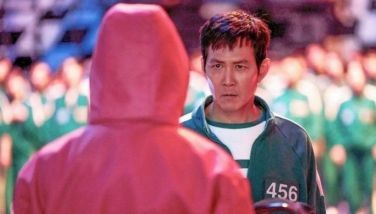Francism
The first boy I ever liked was two things: my brother’s first best friend and, like my brother, a big Francis Magalona fan. This was in the late 1980s, which meant they copied everything about Francis: his moves, his funky hairstyle, and his fashion statement. Remember his ethnic phase, when he wore baggy batik pants and vests? I didn’t think this cool at first, because I was the kind of private Catholic schoolgirl torn between admitting I watched That’s Entertainment! and leaving this kind of make-or-break information within the confines of my house. But part of Francis’ magic is that he makes everything cool — and he made one very important thing cool: being Filipino.
At that time, mostly foreign acts were hitting the airwaves. All we knew of rap were Vanilla Ice and MC Hammer. The parents and teachers didn’t get rap; they either thought it was the greatest joke ever that somebody talking fast could be considered singing, or they believed it was, like the music of Guns and Roses, “bad influence.” I didn’t know anything much about it either, except that I thought it was a purely American thing, black or white. What I knew about Filipino music was the likes of “Anak,” “Saranggola ni Pepe,” or “Handog ng Pilipino sa Mundo.” There was Jose Mari Chan, with his ballads, but they fell along nicely with Barry Manilow hits, so that didn’t count — at least not at first.
But then FrancisM arrived.
I first noticed Francis — as in saw there was more to his Bagets 2 and Ninja Kids antics — when he sang Billy Joel’s “We Didn’t Start the Fire” on That’s! To me, it was a landmark moment, so much so that I even penned it in my grade school diary: “Today Francis Magalona sang “We Didn’t Start the Fire.” I’ve never heard a Filipino sing like that before!” For some reason, with that performance, he opened a door in the wall of colonial mentality for me—the same wall that he would bravely keep breaking down with songs like “Mga Kababayan Ko,” which made me admire the man for life, even if I’m probably still as clueless about rap and hip-hop as I was.
When “Mga Kababayan Ko,” came out, suddenly, there was Pinoy music that spoke to our generation. Filipino became cool. Kids at my school, who were reared on 21 Jumpstreet and Milli Vanilli and Archie comics, started saving lunch money for his album Yo! and even teachers begrudgingly allowed his music to be played on the loudspeakers during school-wide events.
Francis would become a constant in the years following. He would release some more hits. He would venture into photography. He would inspire and support other rappers. He would join Eat Bulaga! He would design t-shirts that would banner nationalistic fever. He would do all these, always an artist, always consistent with his Filipino pride. And then he would die.
But Francis’ vibe was always young; his movement, always forward. On Saturday, during the Eat Bulaga! tribute, one young rapper said that when he told Francis about other people dissing him, Francis replied, “Ang tunay na (rap)legend, imbis na sumisira, gumagawa. Imbis na nagsasawa, simula ng simula.”
Spoken like an artist. Spoken like a true Filipino. Spoken like a true patriot.
FrancisM has truly arrived.
- Latest
- Trending

























